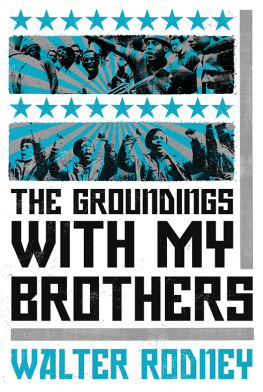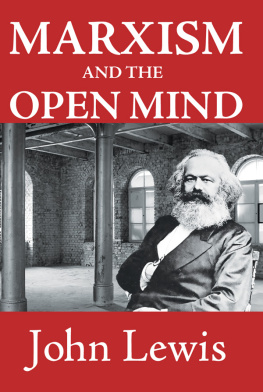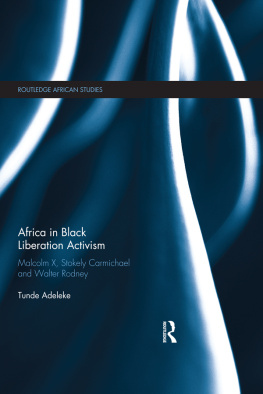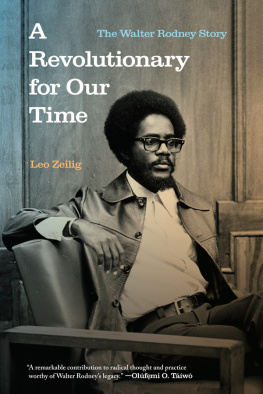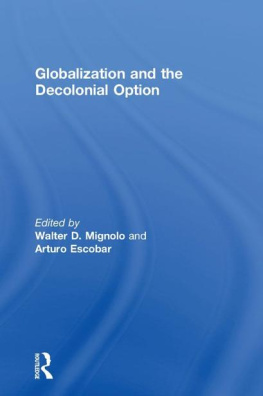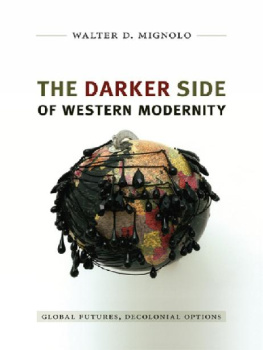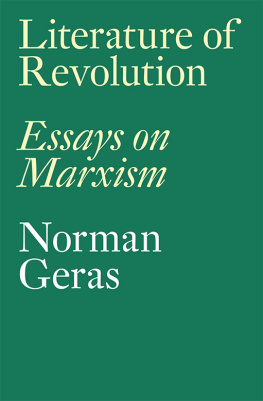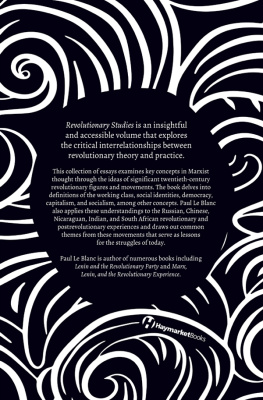Walter Rodney - Decolonial Marxism: Essays from the Pan-African Revolution
Here you can read online Walter Rodney - Decolonial Marxism: Essays from the Pan-African Revolution full text of the book (entire story) in english for free. Download pdf and epub, get meaning, cover and reviews about this ebook. publisher: Verso, genre: Politics. Description of the work, (preface) as well as reviews are available. Best literature library LitArk.com created for fans of good reading and offers a wide selection of genres:
Romance novel
Science fiction
Adventure
Detective
Science
History
Home and family
Prose
Art
Politics
Computer
Non-fiction
Religion
Business
Children
Humor
Choose a favorite category and find really read worthwhile books. Enjoy immersion in the world of imagination, feel the emotions of the characters or learn something new for yourself, make an fascinating discovery.
- Book:Decolonial Marxism: Essays from the Pan-African Revolution
- Author:
- Publisher:Verso
- Genre:
- Rating:5 / 5
- Favourites:Add to favourites
- Your mark:
- 100
- 1
- 2
- 3
- 4
- 5
Decolonial Marxism: Essays from the Pan-African Revolution: summary, description and annotation
We offer to read an annotation, description, summary or preface (depends on what the author of the book "Decolonial Marxism: Essays from the Pan-African Revolution" wrote himself). If you haven't found the necessary information about the book — write in the comments, we will try to find it.
Decolonial Marxism: Essays from the Pan-African Revolution — read online for free the complete book (whole text) full work
Below is the text of the book, divided by pages. System saving the place of the last page read, allows you to conveniently read the book "Decolonial Marxism: Essays from the Pan-African Revolution" online for free, without having to search again every time where you left off. Put a bookmark, and you can go to the page where you finished reading at any time.
Font size:
Interval:
Bookmark:
This eBook is licensed to Ryan Deason, iatemoreearth@gmail.com on 08/02/2022
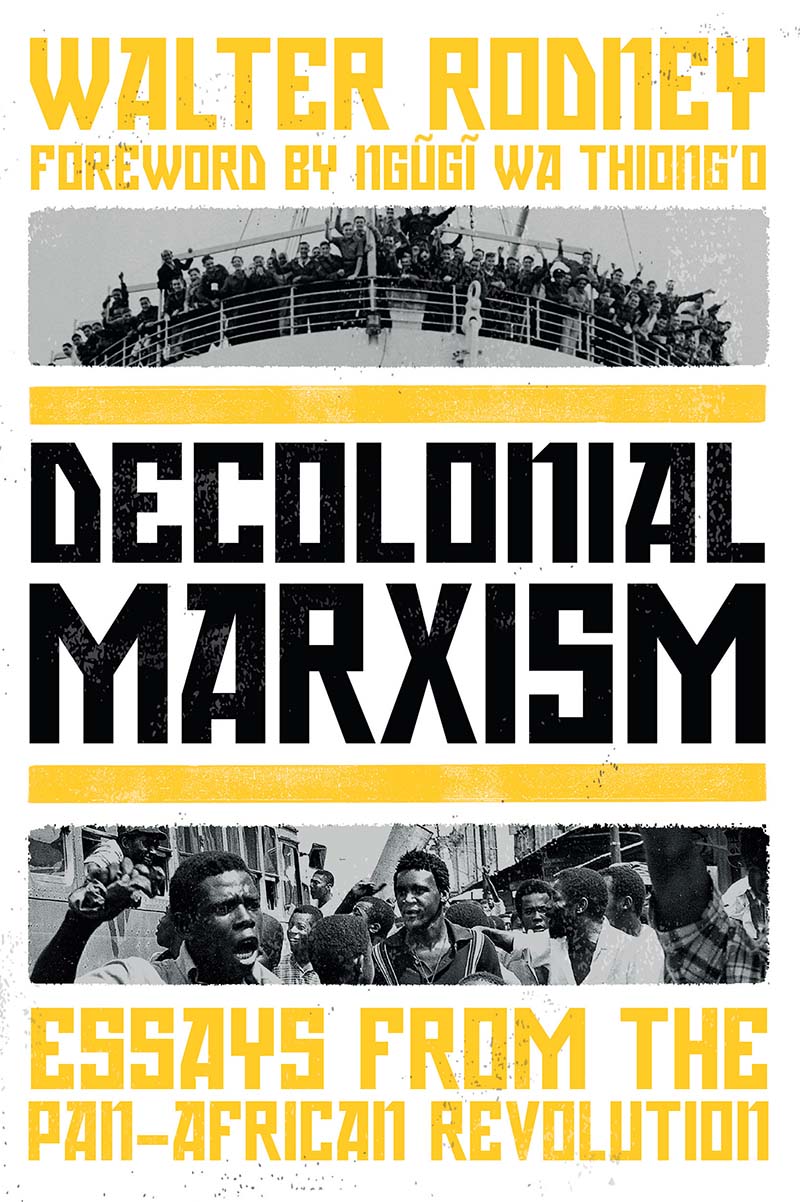
Decolonial Marxism
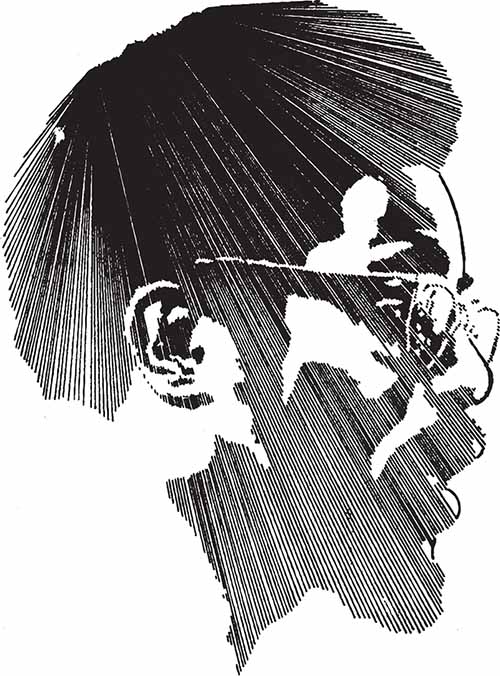
This eBook is licensed to Ryan Deason, iatemoreearth@gmail.com on 08/02/2022
Decolonial Marxism
Essays from the
Pan-African Revolution
Walter Rodney
Edited by
Asha Rodney, Patricia Rodney,
Ben Mabie and Jesse Benjamin

This eBook is licensed to Ryan Deason, iatemoreearth@gmail.com on 08/02/2022
First published by Verso 2022
Walter Rodney Foundation 2022
Foreword Ngg Wa Thiongo 2022
Frontispiece original art by Abbyssinian, redesigned by Aajay Murphy
All rights reserved
The moral rights of the authors have been asserted
1 3 5 7 9 10 8 6 4 2
Verso
UK: 6 Meard Street, London W1F 0EG
US: 388 Atlantic Avenue, Brooklyn, NY 11217
versobooks.com
Verso is the imprint of New Left Books
ISBN-13: 978-1-83976-411-0
ISBN-13: 978-1-83976-414-1 (US EBK)
ISBN-13: 978-1-83976-413-4 (UK EBK)
British Library Cataloguing in Publication Data
A catalogue record for this book is available from the British Library
Library of Congress Cataloging-in-Publication Data
A catalog record for this book is available from the Library of Congress
Typeset in Sabon by MJ & N Gavan, Truro, Cornwall
Printed and bound by CPI Group (UK) Ltd, Croydon, CR0 4YY
This eBook is licensed to Ryan Deason, iatemoreearth@gmail.com on 08/02/2022
Contents
This eBook is licensed to Ryan Deason, iatemoreearth@gmail.com on 08/02/2022
Walter Rodney Completes Marx
Ngg wa Thiongo
Colonization with all its interlinked economic, political, cultural and even psychic dimensions, has been central to the making of capitalist modernity. It was the new colonies in the West that fuelled Atlantic slave trade with the African body as commodity, and slavery, with the African body providing unpaid labor for the colonial plantations, and racism, with all its dehumanization of the African body and mind. Negation of the African humanity.
All these fueled the development of Europe and the West. The major cities of Europe were built by riches from slave trade, slavery and colonialism. Three of the major nuclear powers today the USA, Britain and France were also major players in enslavement and colonization. Western Modernity is rooted in the looting of a continent.
But one of the most frequently propagated colonial mythologies is that of Europe and the West having developed Africa. All the major thinkers of the European enlightenment from Hume to Kant and Hegel advanced the same thesis also embodied in Missionary and Explorer narratives about the continent. The myth continues today with the West seen as donor to Africa.
It was Walter Rodney who best articulated a refutation of that mythology in his now universally acclaimed classic: How Europe Underdeveloped Africa. This and Fanons TheWretched of the Earth are really the basic material for helping make sense of the contradictions which still haunt Africa and all the formerly colonized of Asia and South America. The African post-colonial elite is very protective of their phony identities; Francophone, Anglophone and Lusophone. But they are never protective of the resources of the conntinent. Ninety per cent of these resources, including diamonds, gold, oil, copper, cobalt, uranium are still owned by Western corporations. Africa, the biggest continent in the world, continues to be the main donor to Europe and the West.
See the contradiction. Europe gave Africa the resources of their accents, the basis of those phony identities. Africa gave Europe access to the resources of the continent. Accents for Access: that is really the story of Africas underdevelopment by Europe, well captured and analyzed by Walter Rodney.
Rodney was able to do this because of his Marxian approaches to history which enabled him to see clearly the intertwinment of economics, politics, culture and values, which, under capitalism rests on the primary contradiction between labor and capital. But he was able to add the racial and colonial dimension to this. Race, gender and colonialism were integral to development of capitalism to its current stage of global imperialism.
Colonization is colonizer and colonized. So decolonization at the economic, political, cultural and psychic levels has to involve both the colonizer and the colonized. Even our methodologies need to be decolonized from their Eurocentric basis. Marxist class analysis needs the dimensions of race and colony and gender to complete it.
These essays, Decolonial Marxism, will be an important companion to our continued learning from the same Pan-African mind that showed us clearly how Europe under-developed the continent. With the dimesnions of race and colony added to class analysis, Rodney completes Marx.
This eBook is licensed to Ryan Deason, iatemoreearth@gmail.com on 08/02/2022
Marxist Theory
and Mass Action
This eBook is licensed to Ryan Deason, iatemoreearth@gmail.com on 08/02/2022
In Amilcar Cabral, Africa had a giant who bridged the gap between theory and practice, and hence represented the embodiment of revolutionary praxis. Cabral was a theoretician of the highest calibre but only because he was involved in changing the ugly realities of colonized African society. He supervised a Peoples War of Liberation with great distinction but only because of the soundness of his scientific worldview and his capacity to apply it penetratingly to the social relations of Guinea-Bissau.
The few pages which Cabral devoted to an analysis of the African societies of Guinea-Bissau are of extraordinary perceptiveness and authenticity. This is understandable, since the accuracy of the interpretation was literally a matter of life and death. The massive task of political mobilization that the African Party for the Independence of Guinea and Cape Verde (Partido Africano da Independncia da Guin e Cabo Verde PAIGC) so strikingly achieved was based on a correct appreciation of such niceties as the relations between youth and elders among the Balanta people; or ties between a quasi-feudal Fula lord and his aliens, or the role of the itinerant Manding trader within the colonial economy. Based on this political mobilization, the military conflict has in turn been decidedly resolved in favour of the PAIGC in most parts of Guinea-Bissau.
It is the element of commitment which sets Cabral apart from the common run of intellectuals who boast of being neutral and un-biased, thereby passively accepting the perpetuation of the colonial status quo. At the same time, Cabrals work as a revolutionary African intellectual also contrasts sharply with the purpose of the early European anthropologists who openly oriented their study towards the maintenance of colonial rule, by writing intelligence reports for the occupying power. Cabral was serving as an intelligence officer of the army of liberation, when he unravelled the intricacies of segmentary lineage groups and the stratified social formations which exist in Guinea-Bissau. The fact that the Portuguese colonial regime has virtually fallen apart in contrast to the surging growth in the area of liberated Guinea is the ultimate proof of the reactionary nature of the colonial relationship and the progressive character of the intellectual work carried out by Cabral and his colleagues.
Font size:
Interval:
Bookmark:
Similar books «Decolonial Marxism: Essays from the Pan-African Revolution»
Look at similar books to Decolonial Marxism: Essays from the Pan-African Revolution. We have selected literature similar in name and meaning in the hope of providing readers with more options to find new, interesting, not yet read works.
Discussion, reviews of the book Decolonial Marxism: Essays from the Pan-African Revolution and just readers' own opinions. Leave your comments, write what you think about the work, its meaning or the main characters. Specify what exactly you liked and what you didn't like, and why you think so.



